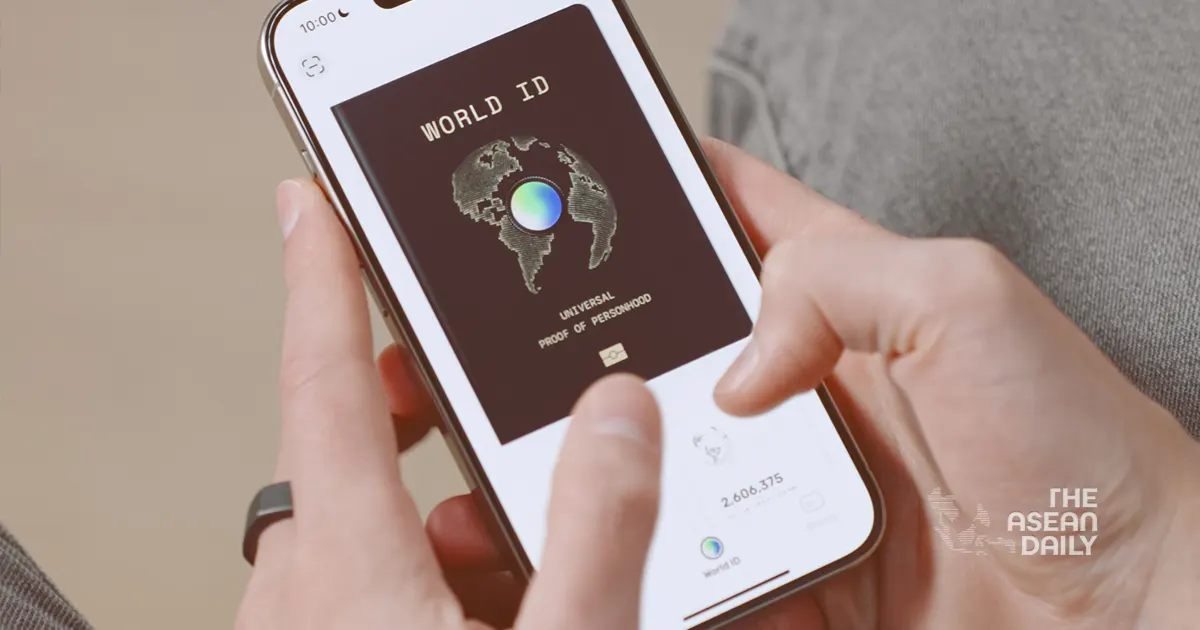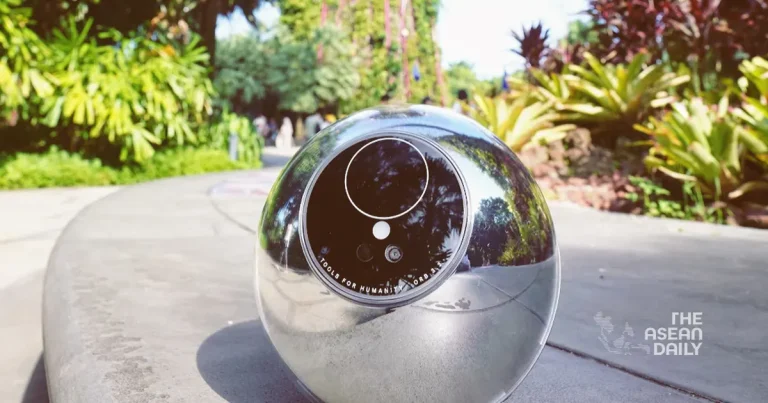28-7-2024 (SINGAPORE) A novel cryptocurrency initiative has taken root in Singapore, drawing queues of eager participants to shopping malls and business hubs across the island. The project, known as Worldcoin, offers digital tokens in exchange for biometric data, raising both excitement and alarm among locals and experts alike.
Co-founded by OpenAI chief executive Sam Altman, Worldcoin aims to create the world’s largest privacy-preserving human identity and financial network. The project utilises proprietary “Worldcoin Orbs” – sleek, silver spheres that scan users’ eyes to verify their identity and create unique “World IDs”. These IDs can then be used to authenticate accounts on various platforms, distinguishing humans from automated bots.
Since its launch in Singapore in December 2023, Worldcoin has established a presence in at least ten locations across the city-state, including the GR.iD shopping mall in Selegie Road and the OGBC Innovation Hub in Raffles Place. The allure of free cryptocurrency has drawn diverse crowds, with migrant workers forming a significant portion of those queueing.
However, the project has not been without controversy. Reports suggest that some migrant workers are being enticed by agents, unaffiliated with Worldcoin, who offer cash payments in exchange for control over the workers’ Worldcoin accounts and tokens. This practice has raised ethical concerns about potential exploitation.
The amount of cryptocurrency offered varies, with some users reporting offers of less than S$100 worth of tokens, while others claim to have received significantly more. Office clerk Ivy Liu, who participated in the scheme, expressed optimism about using the tokens for online purchases and overseas transactions. “When we go overseas, we’re already getting our biometrics scanned and data collected at immigration by different governments,” she remarked, seemingly unconcerned about the privacy implications.

Worldcoin’s operations in Singapore are facilitated by a recently incorporated subsidiary, Everyone in Singapore, led by German citizen Dominique Leonard Simon. The Monetary Authority of Singapore (MAS) has confirmed that while it does not regulate the issuance of digital payment tokens, it has engaged with Worldcoin to better understand its activities in the country.
The Personal Data Protection Commission (PDPC) has urged consumers to exercise caution and fully understand how their personal data will be used before consenting to its collection. The commission emphasised that organisations handling biometric information must adhere to the Personal Data Protection Act and implement necessary security measures.
Globally, Worldcoin has faced scrutiny and restrictions in several countries, including India, Kenya, Spain, and Portugal, due to privacy concerns. Hong Kong authorities have gone as far as ordering a complete cessation of Worldcoin operations within their jurisdiction.
In response to these concerns, Tools for Humanity chief privacy officer Damien Kieran asserts that user biometric data is immediately deleted from the Orbs post-verification. The company employs zero-knowledge proofs, an encryption method that allows data verification without revealing the data itself. However, users can opt in to allow their data to be used for system improvement, albeit without additional incentives.
Dr Sanka Rasnayaka, a lecturer from the National University of Singapore’s School of Computing, warns against providing biometric data to private entities. He highlights the potential for misuse, including identity theft, surveillance, and discrimination. “Biometric data cannot be changed, making any breach potentially lifelong,” Dr Rasnayaka cautioned.




